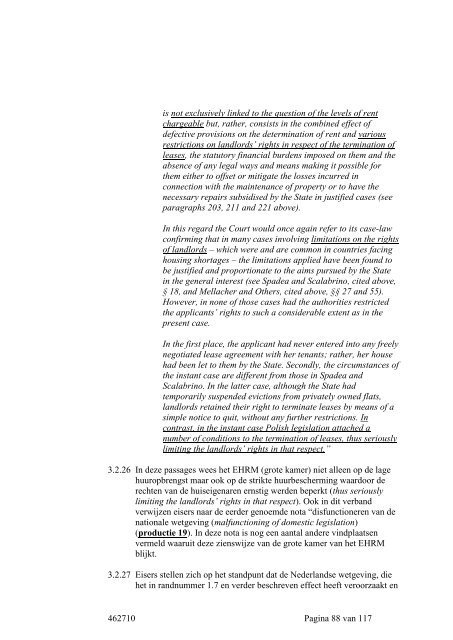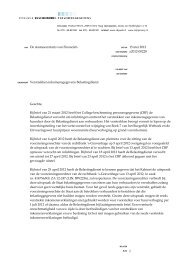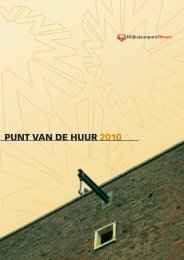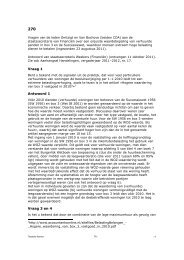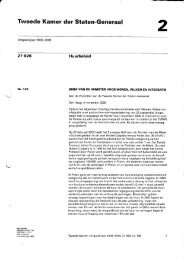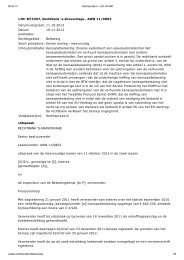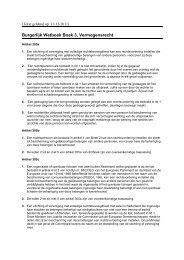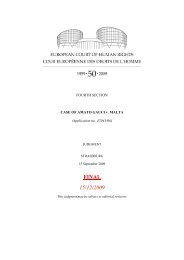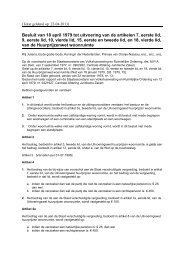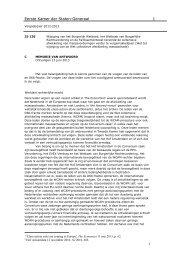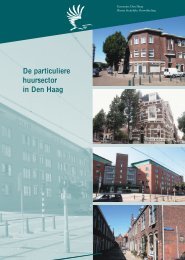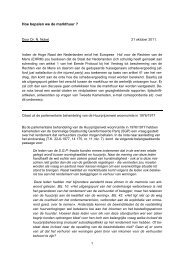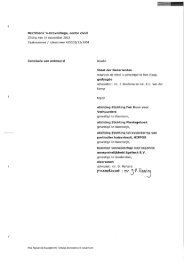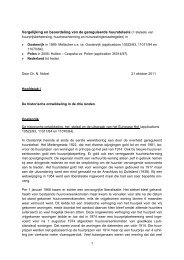Dagvaarding - Fair Huur voor verhuurders
Dagvaarding - Fair Huur voor verhuurders
Dagvaarding - Fair Huur voor verhuurders
You also want an ePaper? Increase the reach of your titles
YUMPU automatically turns print PDFs into web optimized ePapers that Google loves.
is not exclusively linked to the question of the levels of rent<br />
chargeable but, rather, consists in the combined effect of<br />
defective provisions on the determination of rent and various<br />
restrictions on landlords’ rights in respect of the termination of<br />
leases, the statutory financial burdens imposed on them and the<br />
absence of any legal ways and means making it possible for<br />
them either to offset or mitigate the losses incurred in<br />
connection with the maintenance of property or to have the<br />
necessary repairs subsidised by the State in justified cases (see<br />
paragraphs 203, 211 and 221 above).<br />
In this regard the Court would once again refer to its case-law<br />
confirming that in many cases involving limitations on the rights<br />
of landlords – which were and are common in countries facing<br />
housing shortages – the limitations applied have been found to<br />
be justified and proportionate to the aims pursued by the State<br />
in the general interest (see Spadea and Scalabrino, cited above,<br />
§ 18, and Mellacher and Others, cited above, §§ 27 and 55).<br />
However, in none of those cases had the authorities restricted<br />
the applicants’ rights to such a considerable extent as in the<br />
present case.<br />
In the first place, the applicant had never entered into any freely<br />
negotiated lease agreement with her tenants; rather, her house<br />
had been let to them by the State. Secondly, the circumstances of<br />
the instant case are different from those in Spadea and<br />
Scalabrino. In the latter case, although the State had<br />
temporarily suspended evictions from privately owned flats,<br />
landlords retained their right to terminate leases by means of a<br />
simple notice to quit, without any further restrictions. In<br />
contrast, in the instant case Polish legislation attached a<br />
number of conditions to the termination of leases, thus seriously<br />
limiting the landlords’ rights in that respect.”<br />
3.2.26 In deze passages wees het EHRM (grote kamer) niet alleen op de lage<br />
huuropbrengst maar ook op de strikte huurbescherming waardoor de<br />
rechten van de huiseigenaren ernstig werden beperkt (thus seriously<br />
limiting the landlords’ rights in that respect). Ook in dit verband<br />
verwijzen eisers naar de eerder genoemde nota “disfunctioneren van de<br />
nationale wetgeving (malfunctioning of domestic legislation)<br />
(productie 19). In deze nota is nog een aantal andere vindplaatsen<br />
vermeld waaruit deze zienswijze van de grote kamer van het EHRM<br />
blijkt.<br />
3.2.27 Eisers stellen zich op het standpunt dat de Nederlandse wetgeving, die<br />
het in randnummer 1.7 en verder beschreven effect heeft veroorzaakt en<br />
462710 Pagina 88 van 117


